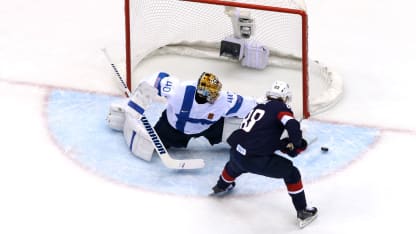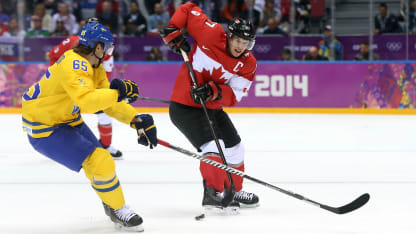The NHL did not send players to the 2018 PyeongChang Olympics after participating in five straight Olympics from 1998-2014, with 706 NHL players attending, an average of 141 per season.
NHL Commissioner Gary Bettman said the majority of its teams were opposed to Olympic participation when the League announced its decision not to participate in 2018.
The chief reason for the disinterest at the time was the interruption of 2 1/2 weeks in the NHL regular-season schedule required in February for Olympic participation. The IOC was also declining to pay the participation costs associated with travel, insurance and accommodations. Fasel said those financial issues can be worked out to get NHL players to the next two Winter Olympics.
"It's something that players want for the most part. Honestly, there wasn't really a negotiation about that," said Jets forward Andrew Copp, a member of the NHLPA negotiating committee. "That was one of the most established points and I think it was almost a formality. I don't think that was something that was some players vs. other players. I think everyone thinks it's a great way to grow the game, and if we're able to play with fans and then continue to grow the revenue of the game, we're going to be able to come out of this pandemic in a great spot. If we don't have fans and we're still able to grow the game in other ways moving forward, then once we get out we'll still be in a good spot."
Canada won the Olympic gold medal three times (2002 Salt Lake City, 2010 Vancouver, 2014 Sochi) with NHL players participating. Sweden won it at Torino in 2006, and the Czech Republic won it at Nagano in 1998.
"I think that's really attractive just because it's growing the game and we get to promote our game," Carolina Hurricanes forward Justin Williams said. "The best players are out there. I just think it's great for the game of hockey be able to showcase the best players, guys you don't normally see as teammates. It's just so unique. The Olympics are a special event in itself, but having NHL players there, you love to see the best on best, and that's pretty, pretty special."
The United States won the silver medal in 2002 and 2010. Sweden won the silver in 2014. Finland won the silver in 2006, and the bronze medal in 1998, 2010 and 2014. Russia won the silver in 1998 and the bronze in 2002. The Czech Republic won the bronze in 2006.
"Everybody wants to represent their country, everybody wants to play in the Olympics," Vancouver Canucks forward Bo Horvat said. "I think that's a big thing that we wanted, not only for ourselves to represent our country, but to grow the game. I think this is great to negotiate that and be able to play in the Olympics coming up. It's great for hockey, it's great for the fans, and it's great for us as players to represent our countries, so we're excited about it."
The Board of Governors and NHLPA also ratified the NHL Return to Play Plan, which will resume the season Aug. 1 with the 24-team Stanley Cup Qualifiers. It has been paused since March 12 due to concerns surrounding the coronavirus.
The collective bargaining agreement will expire after the 2025-26 NHL season.



